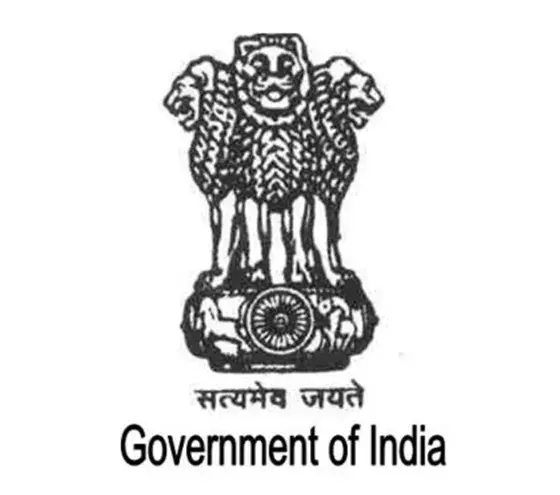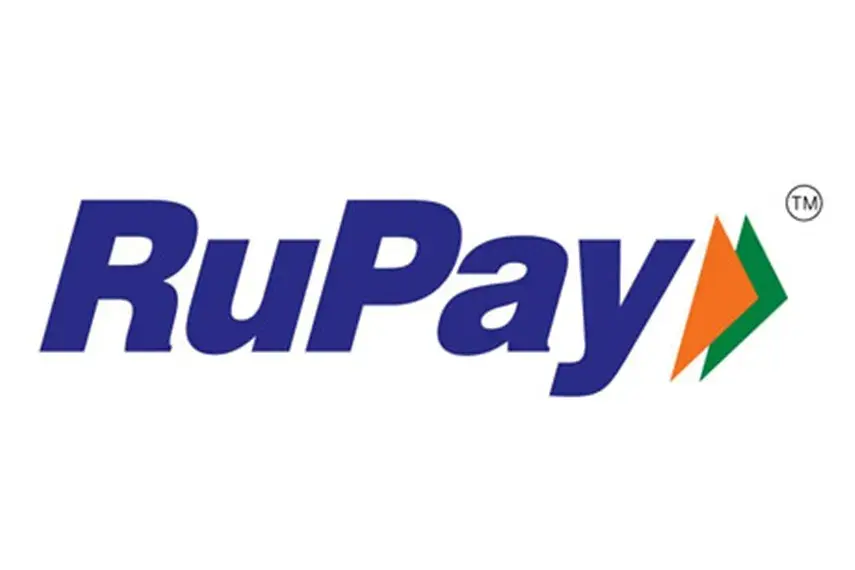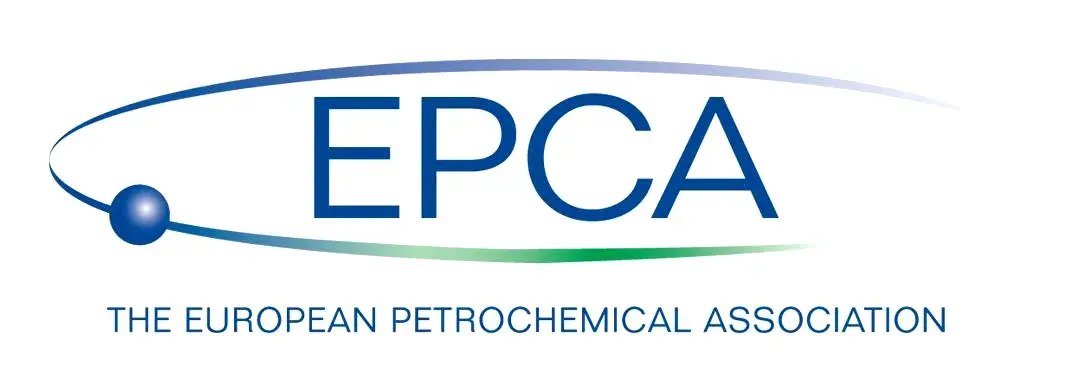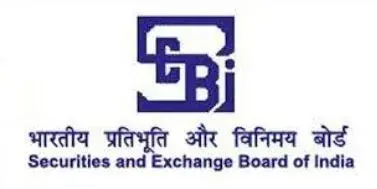India: E-reporting of air pollution incidents
 The Government has introduced e-portals for recording pollution causing incidents.
The Government has introduced e-portals for recording pollution causing incidents.
India: Amendments to IBC Liquidation Process
India: ‘RuPay’ gaining rapid popularity
![]() India’s own payment system in the form of RuPay for carrying out transactions is gaining popularity.
India’s own payment system in the form of RuPay for carrying out transactions is gaining popularity.
India: Rice Mills too shut down transitorily to control pollution
India: SEBI streamlines IPO process
India: NGT snaps power for controlling Pollution
NGT ordered for ceasing the power supply to pollution causing industries.
India: E-reporting of air pollution incidents

The alarmingly high rates of pollution have raised great concerns for the Government. The dipping air quality index specifically during the festive season is indicative of the worsening of the environment and the dangers of the prospective increase of pollutants therein. The present levels are sufficient to contribute towards the lower health standards and with such a poor-quality air with dangerous gasses, it shall become difficult for people to ordinarily breathe in the open air. Visualising the gravity and sensitivity of the issue, the Central Pollution Control Board has notified for inviting complaints in this regard.
Pollution
Introduction of contaminants such as any solid, liquid or gaseous substance present in the surrounding ecosystem in such a concentration, as may be, or tend to be injurious to environment including air, water, soil and inter-relationship between living creatures.
Causes
The needs of the modern lifestyle require excessive usage of resources. The unregulated and indiscriminate usage of energy resources without controlling the emissions released for purposes of industrial usage, vehicular needs, crop destruction, construction activities, burning of garbage, thermal energy, etc. cause pollution. Also, the inducement of the environment damaging components in the form of man-made pollutants such as plastic, chemicals, firecrackers, electric/ electronic equipment, radioactive/ nuclear wastes, etc. result in further environmental harm.
Ill-effects
Raising pollution has resulted in the accumulation of problems such as dermatological issues, chronic respiratory disorders, cardiovascular problems, retardation of foetal growth, etc. This has affected most to the children and old people. It has also caused in death and extinction of various species which once resided on the planet, making an ecological imbalance in the co-existent natural system.
Controlling mechanism
The Environment Protection Act, 1986 with the objective of conservation and improvement of environment has been introduced along with various legislations working towards the protection of various environmental components.
To ensure effective monitoring and regulation of pollution, authorities such as the Central Pollution Control Board (hereinafter referred to as “CPCB”) have been established which works for cleanliness thus improving the environment. In furtherance of the said objectives CPCB consistently formulates strategies.
Remedies
Confronted by the challenge of handling the pollution menace, the Government has taken numerous recent measures. It has been creating awareness and involving citizen participation in the campaigns aimed at the conservation of the environment in the form encouraging plastic ban, electric vehicle usage, usage of low emission vehicles, advantages of shared mobility/ public transport, etc.
E-complaints
The Central Pollution Control Board Thursday informed the Supreme Court that it has created social media account on Twitter ( https://twitter.com/CPCB_OFFICIAL ) and Facebook ( https://www.facebook.com/Central-Pollution-Control-Board-315289479059625/ ) to facilitate citizens in lodging complaints pertaining to air pollution incidents in Delhi-National Capital Region. Apart from the social media accounts, complaints can be lodged through Sameer mobile App. [1]
This comes in furtherance to the Supreme Court order dated October 29, 2018, prohibiting the plying of 15-year old petrol and 10-year old diesel vehicles in the National Capital Region due to the alarmingly high levels of pollution in the region.[2]
With the proliferation of internet in the modern lifestyle and attributable to its ready accessibility, more and more people of the country are active on the social media platforms. These not only help to share their viewpoints, comments, pictures, videos, etc. while using such interface for social networking purposes. The Government is using this digitalization media to control the pollution causing activities by using the e-space for reporting such incidents.
[1]https://indianexpress.com/article/india/delhi-ncr-air-pollution-cpcb-guidelines-complaints-supreme-court-social-media-5427900/; davp 13113/13/0013/1819
India: Amendments to IBC Liquidation Process

India is increasingly becoming one of favoured business destinations on the international scale. This is attributable to a number of factors including the schemes and policies introduced by the Government from time to time. One of the major reasons for the improvement of the country’s position in the parameter of ‘Ease of Doing Business’ is the development of an efficient insolvency and bankruptcy resolution mechanism.
Insolvency and Bankruptcy Resolution
The Government introduced the Insolvency and Bankruptcy Code, 2016 (hereinafter referred to as the “IBC”) with the aim to making availability of credit more transparent by maximizing the value of the assets in a time-bound manner. The provisions of the IBC are monitored under the regulatory authority of the Insolvency and Bankruptcy Board (hereinafter referred to as “IBBI”) ensuring efficacious implementation of the fundamentals laid down under the IBC.
Regulating Liquidation
Liquidation is the process which causes a business to close, so that its assets can be sold off to pay its pending dues. Instilling faith in the judicial authority and the aiding recovery of the lent credit, the IBC works out for opportunities to revive the company under insolvency resolution process before eventual disposal of assets to pay off its debts. The liquidation of a company is monitored under the provisions of the Insolvency and Bankruptcy Board of India (Liquidation Process) Regulations, 2016 (hereinafter referred to as “Liquidation Regulations”).
Amendments to the Liquidation Regulations
In order to ensure proper implementation of the Liquidation Regulations with the objective of resolving the problem of bad loans, amendments have been brought via notification dated October 22, 2018. Some of the features of the said amendments are listed below:
- Regulation 32 has been substituted by the provision for Sale of Assets, etc. whereunder the liquidator may sell-
(a) an asset on a standalone basis;
(b) the assets in a slump sale;
(c) a set of assets collectively;
(d) the assets in parcels;
(e) the corporate debtor as a going concern; or
(f) the business(s) of the corporate debtor as a going concern:
However, where an asset is subject to security interest, it shall not be sold under this section unless the security interest therein has been relinquished to the liquidation estate.
- Regulation 34 (2) (b) has been substituted by the provision for asset memorandum requiring to details in respect value of the assets or business(s) under clauses (b) to (f) of regulation 32, valued in accordance with regulation 35, if intended to be sold.
- Regulation 35 has been substituted by the provision for valuation of assets or business intended to be sold.
(1) Where the valuation has been conducted under regulation 35 of the Insolvency and Bankruptcy Board of India (Insolvency Resolution Process for Corporate Persons) Regulations, 2016 or regulation 34 of the Insolvency and Bankruptcy Board of India (Fast Track Insolvency Resolution Process for Corporate Persons) Regulations, 2017, as the case may be, the liquidator shall consider the average of the estimates of the values arrived under those provisions for the purposes of valuations under these regulations.
(2) In cases not covered under sub-regulation (1), the liquidator shall within seven days of the liquidation commencement date, appoint two registered valuers to determine the realisable value of the assets or businesses under clauses (a) to (f) of regulation 32 of the corporate debtor:
Provided that the following persons shall not be appointed as registered valuers, namely:
(a) a relative of the liquidator;
(b) a related party of the corporate debtor;
(c) an auditor of the corporate debtor at any time during the five years preceding the insolvency commencement date; or
(d) a partner or director of the insolvency professional entity of which the liquidator is a partner or director.
(3) The Registered Valuers appointed under sub-regulation (2) shall independently submit to the liquidator the estimates of realisable value of the assets or businesses, as the case may be, computed in accordance with the Companies (Registered Valuers and Valuation) Rules, 2017, after physical verification of the assets of the corporate debtor.
(4) The average of two estimates received under sub-regulation (3) shall be taken as the value of the assets or businesses.
IBC prevents the unscrupulous debtors from escaping the repayment of their debts by taking recourse to insolvency. With a view to ascertain adequate details, valuation and sale of the assets of the company undergoing liquidation modifications have been introduced the Liquidation Regulations assuring proper reliefs to the bonafide creditors.
India: ‘RuPay’ gaining rapid popularity

Development of internet technologies and its ready acceptability in the modern world has transformed the human world. The increased level of technological advancement can be witnessed from the fact that most of the transactions which were carried out manually or with much effort have now been switched with readily available and user-friendly electronic equipment. The advent of digitalization has touched almost all spheres of human lives making it more independent and self-reliant. Numerous forms of interactions are available on cyber-space connecting people via email, chatting, e-calling, e-commerce, e-banking, etc.
Online Payments in India
India finds a vast segment of its population now dependent on technology for carrying out number of transactions. The Government has also made efforts for promoting cashless mode of dealings through the digitalization.
Online payments in India are regulated by the National Payments Corporation of India (hereinafter referred to as “NPCI”) which is the organisation for operating retail payments and settlement systems in India. The unified payment interface (hereinafter referred to as “UPI”) is an instant real-time payment system developed by NPCI and regulated by Reserve Bank of India (hereinafter referred to as “RBI”) that facilitates inter-bank transactions occurring on the web-platform.
Payment Companies in India
A number of payment companies are flourishing in India presently. Card payment companies such as Visa, MasterCard have been prevalent in the Indian market since a long time ensuring hassle-free payment transaction. The recent addition to this is the first of its kind indigenous payment system known as ‘RuPay’, launched by the NPCI, conceived to fulfil RBI’s vision to offer a domestic, open-loop, multilateral system which will allow all Indian banks and financial institutions in India to participate in electronic payments.
Advantages of RuPay
The newly introduced RuPay system is beneficial in the following ways:
- Lower cost and affordability in terms of cost of clearing and settlement for each transaction.
- Customized product offering
- Protection of information relating to transaction and customer data
- Provide electronic product options to untapped/unexplored consumer segment in rural areas that do not have access to banking and financial services.
- Inter-operability between payment channels and products
Foreign Players upset
Since its inception, RuPay has been strongly promoted and campaigned for by the Indian Government encouraging the reliance to domestic payment services network. This has resulted in increasing popularity breaking the dominance of the dominant players such as MasterCards and Visa.[1] More than half of India’s 1 billion debit and credit cards now go through the RuPay payment system challenging the position of the existent entities in the market. Causing a sense of envy amongst the others in this sector has risen regarding their business.
The Indian version of the payment systems in the form of RuPay has gained rapid popularity in the country ousting the major organizations having established their presence since a long time owing to their cost-effective, safe and advantageous features.
[1] https://economictimes.indiatimes.com/industry/banking/finance/mastercard-lodged-us-protest-over-narendra-modis-promotion-of-indian-card-network-rupay/articleshow/66466794.cms
India: Rice Mills too shut down transitorily to control pollution

The increased dependence on high quantities of energy sources for meeting the needs of the modern man has resulted in exploitation of mother nature by suffocating the nearby ecosystem with dangerous effluents thereby making it unfit for all forms of life. The deteriorating conditions has caused great concern to the Government requiring it to take urgent and severe measures for environmental protection and retain clean air for breathing.
Cause of Pollution
The unwarranted and rampant usage of non-renewable sources of energy has raised the amount of toxic discharge of undesirable toxic and damaging elements in the natural habitat. There has been inadequate disposal of remnants of energy resources used for purposes of industrial usage, vehicular needs, crop destruction, construction activities, burning of garbage, thermal energy, etc. Worsening the situation further, there is inducement of the environment damaging components in the form of man-made pollutants such as plastic, chemicals, firecrackers, electric/ electronic equipment, radioactive/ nuclear wastes, etc.
Consequences of pollution
Owing to various sources of pollution degrading the quality of life, the earth has now become a chocking chamber with immensely high quantities of poisonous elements accelerating the process of destruction of all life forms prevalent. Elevation in pollution has resulted in the accumulation of problems such as dermatological issues, chronic respiratory disorders, cardiovascular problems, retardation of foetal growth, etc. This has affected most to the children and old people. It has also caused in death and extinction of various species which once resided on the planet, making an ecological imbalance in the co-existent natural system.
Handling the menace
- Legislative measures
Numerous legislative measures have been devised with the objective of conservation and improvement of environment such as Environment Protection Act, 1986, Air (Prevention and Control of Pollution) Act, 1981, Water (Prevention and Control of Pollution) Act, 1974, E-Waste (Management) Rules, 2016, Plastic Waste (Management and Handling) Rules, 2011, Solid Waste Management Rules, 2016, etc. In order to ensure effective and expeditious disposal of cases relating to environmental protection, National Green Tribunal Act, 2010 was enforced.
- Administrative efforts
The Government has been consistently working towards creating awareness and encouraging participation of the citizens in its campaigns aimed at the well-being and conservation of the environment such as “Beat Plastic Pollution”[1], Green Good Deeds[2], Electric Vehicle promotion[3], schemes motivating for shared mobility[4], Graded Response Action Plan for handling air pollution, requiring compliance Bharat Standard- VI emission standards, subsidy for replacing/ conversion of coal-based tandoors with cleaner fuel options[5], etc.
- Judicial remedy
Stringent instructions have been passed by the judicial bodies of the country to ascertain non-breach of the standards for safeguarding environmental set before the citizens of the country. Some of the deterrent orders passed in this regard include the use of Compressed Natural Gas vehicles in Delhi airport only for buses and coaches [6]; fines imposition on different States for non-submission of solid waste management policy [7]; barring the manufacture/ sale of non- Bharat Standard- VI emission standards after March 31, 2020[8]; prohibition on plying of 15-year old petrol and 10-year old diesel vehicles in the National Capital Region (hereinafter referred to as “NCR”)[9]; bursting of ‘green’ crackers at restricted time intervals[10]; imposition of penal liabilities, halt of all construction activities, industries using coal/ biomass in NCR from November 1, 2018 – November 10, 2018 [11]
Further control
Considering the sensitivity and the need to address to the problem of increasing pollution, the Government has been taking immediate steps indicating its no tolerance policy towards the same. In furtherance to the same, the Environment Pollution (Prevention & Control) Authority has directed around 500 rice mills across Haryana, Uttar Pradesh and Rajasthan to stop operations from November 4, 2018.[12] This comes as a precaution to protect against the alarming pollution levels. However, it may result in loss to the industry and the interests of the farmers as rice is seasonal crop.
As the festival season approaches nearer, there is a likelihood of the air quality index dipping further. To reduce the adverse effects of rising pollution levels, contributions are being made by all levels of the governing authorities. A transitory halt to the activities introducing inappropriate emissions in the environment could help reduce its burden.
[2] Ministry of Environment, Forests and Climate Change notification dated February 3, 2018
[3] https://economictimes.indiatimes.com/news/economy/policy/end-of-permit-raj-for-electric-alternative-fuel-vehicles/articleshow/65711728.cms; https://www.livemint.com/Industry/JQyksIjj8vPPZsppfzBdfM/PMO-for-incentives-to-lithiumion-batteries-over-electric-ve.html; https://economictimes.indiatimes.com/industry/auto/auto-news/ev-charging-stations-may-become-must-in-buildings-parking-lots/articleshow/66353793.cms
[5] www.dpcc.delhigovt.nic.in/Off_Order_28-09-18.pdf
[6] Supreme Court Civil Appeal No.4954-4957/2018
[7] In Re: Outrage as Parents End Life After Childs Dengue [SMW (C) No(s).1/2015]
[8] SC Writ Petition (Civil) No. 13029 of 1985
[10] SC Writ Petition (Civil) No. 728 of 2015
India: SEBI streamlines IPO process

Attributable to its global ranking for on ‘Ease to Business’ scale, India is increasingly being counted as a favoured business destination in the world. In order to facilitate the carrying out of business activities of varied nature, the Indian legal system allows a number of business structures such as proprietorship, partnership, companies and limited liability partnership. Incorporation of a company is a common mode for business transactions in the country.
Companies in India
Companies are the artificial legal entities having existence independent from its shareholders. Incorporated for the purpose of carrying out business activities as stated in its Memorandum of Association, the companies are often confronted by the requirement of capital with view to expand its operations and earn greater profits. The raising of capital for the said purpose is required to be done in accordance with the Companies Act, 2013 (hereinafter referred to as the “Companies Act”).
Investment in India
The Government is regularly devising schemes that boost the Indian market. The fastest growing economy not only encourages progress of business in India but also makes it an attractive investment option. With a view to secure investment for the Indian business sector, the Government has been making efforts with the help of introduction of investor friendly policies.
Regulated framework
Governed under the provisions of the Securities and Exchange Board of India Act, 1992 (hereinafter referred to as the “SEBI Act”), the Securities and Exchange Board of India (hereinafter referred to as the “SEBI”) is the market regulator of India which aims to protect the interests of investors in securities and to promote the development of, and to regulate the securities market and for matters connected there with or incidental thereto.
Initial Public Offering
One of the mediums for the companies to raise capital is through initial public offer means an offer of specified securities by an unlisted issuer to the public for subscription and includes an offer for sale of specified securities to the public by any existing holders of such specified securities in an unlisted entity. It serves as the largest source of funds for a company to meet expenses for its projects and go public by being listed on a Stock Exchange.
IPO timeline reduction
SEBI, in its endeavour to provide an efficient mechanism for raising funds, has been continuously striving to regulate the process and methodologies associated with public issue fund raising process. In the said regard, the regulator issued a circular for streamlining the process of public issue of equity shares and convertibles dated November 1, 2018.[1]
With a view to free up the locked investor funds faster so as to benefit both issuers as well as investors, SEBI has initiated the process to reduce the timeline for public issues from the current 6 days to 3 days in a phased manner by making it mandatory for intermediaries to provide retail investors the option of bidding through the Unified Payments Interface as a payment mechanism with Application Supported Block Amount for applications in public issues.
In the second phase, the current mechanism of physically submitting bid forms from the intermediaries to the banks would be discontinued after 3 months. The said process would be effective April 1, 2019 onwards.
Subsequent third phase provides that final reduced timeline will be made effective using the Unified Payments Interface mechanism.
The proposed process is expected to increase efficiency, eliminate the need for manual intervention at various stages, and will reduce the time duration from issue closure to listing by up to 3 working days.
[1] https://www.sebi.gov.in/sebi_data/attachdocs/nov-2018/1541067380564.pdf
India: NGT snaps power for controlling Pollution
As the festive season is approaching nearer, the air in the surroundings is deteriorating sharply to a great extent. A large part of the northern area is facing severely poor air quality shrouding it with a thick haze in the form smog made of tiny particulate matter which can penetrate deep into the lungs leading severe troubles. Sufficient contributions in this regard have been made by the setting fire to the crop residue by the farmers in the said region.
Pollution Problem
Pollution is the process of introduction of solid, liquid or gaseous contaminants in the environment in such a concentration, as may be, or tend to be injurious to environment results in hazardous consequences. Some of the sources of pollution include emissions from vehicular usage, industrial works, construction activities, burning of crops and garbage, firecracker burning, etc. releasing harmful poisonous constituents in the surrounding air.
Health impacts
Rising pollution levels are a source of number of problems such as chronic respiratory disorders, cardiovascular problems, retarded foetal growth, dermatological issues, etc. The problem of pollution not only affects humans but also other living creatures on the planet even resulting in their death and extinction thereby hampering the co-existence in the ecosystem.
Legal control
With the objective of conservation and improvement of environment, the Environment Protection Act, 1986 was enforced along with the other legislative provisions specifically dealing with the pollution of various components of the environment including the Air (Prevention and Control of Pollution) Act, 1981 introduced to prevent, control and abate air pollution.
In order to protect environment and creation of legal framework in this regard, the National Green Tribunal Act, 2010 (hereinafter referred to as the “NGT Act”) was brought into effect which established the regulatory body – the National Green Tribunal (hereinafter referred to as “NGT”) aiming to provide effective and expeditious disposal of cases relating to environmental protection and conservation of forests and other natural resources including enforcement of any legal right relating to environment and giving relief and compensation for damages to persons and property and for matters connected therewith or incidental thereto.
NGT snaps electric supply
In order to impose strict restrictions on those not obeying to the requirement of the law and instructions of the authorities working towards reducing the pollution, the Punjab State Power Corporation Limited on October 31, 2018, snapped the power connections of 57 industrial units in Derabassi after NGT directed adherence to its orders in this regard on October 25, 2018.[1]
The NGT ordered closure of 44 industrial units for non-compliance of the pollution controlling norms issued by the Central Pollution Control Board (hereinafter referred to as “CPCB”) and imposed a liability on them in the form of environment compensation. 9 units were found operating on the premises of a closed unit or non-operating industry and without consent of CPCB board and 4 others were not complying with the ground water standards.
Taking a stringent measure to prevent the degradation of the already depleting standards of air present in the environment, orders have been made to curb the power supply to the industries flouting the environment protection guidelines.
More Articles
- UK Government criminalizes sexually explicit deepfakes
- Supreme Court stays Centre’s Notification of Fact Check Unit under IT Rules
- Misclassification of Health and Energy Drinks on E-Commerce Websites
- SEBI measures to Enhance Investor Protection
- Fraud Reporting under Companies Act vis-à-vis Whistleblower Mechanism
- Brief overview of relevant ex-ante legislative instruments and policy reforms particular to digital markets in international jurisdictions



